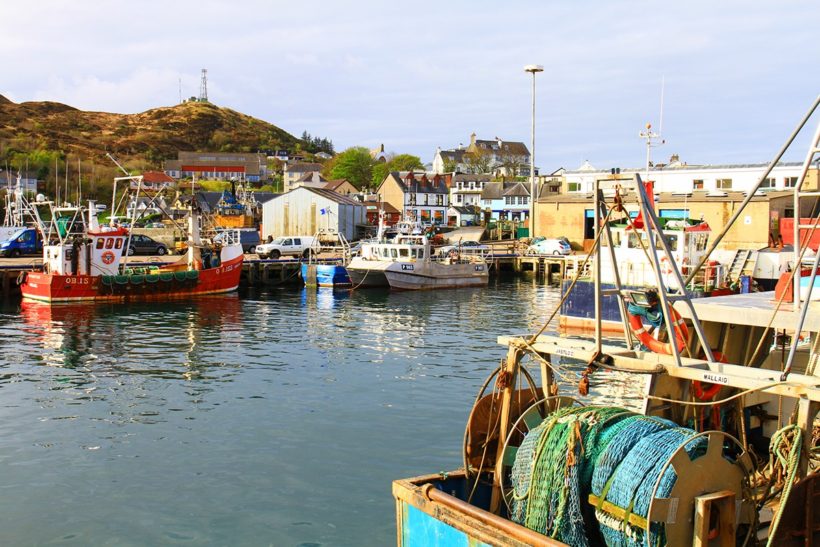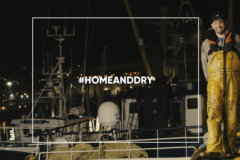Ukraine war sends diesel prices spiralling
Fishermen’s organisations across the UK and Europe are calling on their governments and the European Commission for help to combat rocketing fuel prices that are taking a huge chunk of vessels’ earnings and could make it uneconomic to go to sea, reports Tim Oliver.
A combination of factors, but notably the war in Ukraine, are pushing up the price of diesel and other fuel to record levels.
In the UK, prices in some ports reached over £1 per litre, though they eased back last week as the price of Brent crude on the markets fell back to £77 a barrel after spiking at over £106 – its highest for 14 years.
Half of the UK’s diesel is imported and a third of the imports come from Russia, from where the UK is committed to gradually reducing imports.
Dr Amrita Sen, director of research at Energy Aspects, told the UK parliament’s Treasury Committee last week that diesel pump price rises to £2.50 a litre or even closer to £3 were ‘definitely in the realms of possibility’.
Nathan Piper, head of oil and gas research at financial services company Investec, told the committee that people should be prepared for possible continued increases in fuel prices.
“If more stringent actions are imposed upon Russia, and 5m barrels a day is truly taken out of the market, then oil prices would really have no ceiling,” he told the Treasury Committee.
The high cost of fuel is causing skippers to become ‘speculators’ as they try various strategies to maintain profitability, said Mike Park, chief executive of the Scottish White Fish Producers’ Association (SWFPA), which represents vessels throughout Scotland.
With fuel costing 72p per litre at Peterhead last Wednesday, he told Fishing News: “The current high fuel costs are eating right into the bottom line.
“The dilemma fishermen are facing is: ‘Do we catch our quota now, or do we catch it later?’ – you almost become a speculator.
“Is it better for the bottom line just leaving it in the sea and catching it later when perhaps fuel prices are better, or do you just continue what you’re doing? That’s a judgement a lot of them are facing just now.
“What you don’t want to do is catch it at a time when other people are catching it and at a time when it’s costing you more to catch it.”
Cost savings
Mike Park said that fishermen were becoming like hedge fund operators, looking ahead and speculating on the best way to fish to minimise costs and maximise the bottom line.
Skippers are looking at ways to cut costs, he said. Some operating with two crew are looking to go down to one crewman and spend more time in port between trips, while a number of others are choosing to schedule refits now.
Some skippers are looking at working lighter gear to cut down on fuel costs, or working one net instead of two.
He said fuel prices vary around the country and are ‘bouncing about all over the place as the price of Brent crude bounces up and down’.
“The contrast with the current prices is that at its cheapest during the Covid crisis, diesel was 26p a litre – vessels are paying three times as much for fuel now. It’s a very volatile situation.”
Aberdeen PO chief executive Davie Anderson said the situation was critical, and that fish prices couldn’t rise to the extent that would be needed to compensate.
He told Fishing News: “Diesel is at 70p-£1 a litre and the big boats take about 70,000 litres, so a fair chunk of their grossing is going on fuel costs – this time last year it was 50p. That kind of increase can’t be borne for very long, and prices are likely to keep going up.
“It’s not far away before some boats have to tie up because it won’t be economic to go to sea.”
He said fish prices had kept ‘pretty buoyant’, but they wouldn’t rise enough to compensate for fuel costs.
“Normally you would try to compensate by catching a bit more fish or getting a better price for it, but that’s not likely to happen.”
He said the situation was ‘going to become critical very shortly’, and warned that the whole supply chain would be affected by rising transport costs.
Need to prioritise food security
The NFFO said that while the fuel problem was the most immediate issue facing the industry, it had to be seen ‘in the wider context of changed policy imperatives of reducing our energy and food dependency, given Ukraine is the bread basket of Europe’.
Chief executive Barrie Deas said fuel prices were volatile and had come ‘perilously close to the break-even point when it becomes no longer economically viable for some classes of vessel to go to sea’.
The view at the recent federation executive meeting was that prices would remain volatile and would probably take a while to settle down.
The executive discussed what the government could do to underpin continuity of fuel supplies, given that fishing vessels are primary producers. “The supply chain doesn’t work if there are no landings,” said Barrie Deas.
“The issue is how is fishing different – because everybody is suffering with increased fuel costs.”
He said that if government help was needed because vessels were unable to fish profitably, the best and fastest way forward in the short term would be to redirect some of the money in the £100m Seafood Fund, rather than making an entirely new case to the Treasury for new money.
“Support during Covid was very difficult to achieve – it took a lot to persuade the Treasury that fishing was a special case,” he said.
“Things will settle down eventually, but you’ve got to survive in the short term. A big chunk of money in the Seafood Fund is allocated for infrastructure, which is good, but it’s a question of priorities – fleet survival is more important than some of the infrastructure projects in the short term.”
He said discussions were underway in government and he expected food security would be a priority, although they would be across the board of all food production.
“Food security is part of the bigger picture of a fundamental re-evaluation of defence, energy, economic and political issues because of the invasion of Ukraine.
“As energy markets adjust to the new geopolitical realities, the supply chain cannot function without raw material and primary producers. The focus is on how to provide the support that the fleets need to maintain continuity of supply.”
Highlighting the prime minister’s view that the solution to energy needs is North Sea wind power, he said: “We were already moving towards an era of very rapid expansion of offshore wind on a scale never seen before, and that’s before the war and all its implications.
“That’s why we’re flagging up that we need to talk urgently about food priority areas and to reject the view: ‘Oh well, you can catch your fish somewhere else’ – because you can’t.”
This story was taken from the latest issue of Fishing News. For more up-to-date and in-depth reports on the UK and Irish commercial fishing sector, subscribe to Fishing News here or buy the latest single issue for just £3.30 here.






